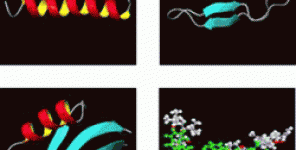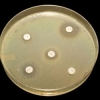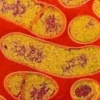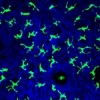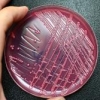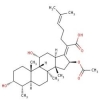Un peptide antimicrobico che funziona come un adiuvante endogeno
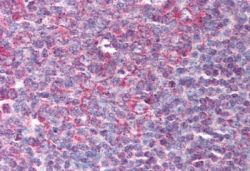 Le beta-defensine umane (hBDs) sono peptidi antimicrobici che hanno un ruolo importante nelle risposte immunitarie innate, siano esse le barriere epiteliali o la pelle. Tuttavia, non è stato ancora del tutto compreso il ruolo che le hBDs hanno nella fase iniziale delle risposte immunitarie cellulari, che contribuiscono all'immunità adattativa antigene-specifica. Qui mostriamo come un membro della famiglia hBD, la hBD3, possa indurre nelle cellule dendritiche umane simili alle cellule di Langerhans (LC-DCs), la maturazione e l'alterazione di funzione delle cellule T-helper di tipo 1.
Le beta-defensine umane (hBDs) sono peptidi antimicrobici che hanno un ruolo importante nelle risposte immunitarie innate, siano esse le barriere epiteliali o la pelle. Tuttavia, non è stato ancora del tutto compreso il ruolo che le hBDs hanno nella fase iniziale delle risposte immunitarie cellulari, che contribuiscono all'immunità adattativa antigene-specifica. Qui mostriamo come un membro della famiglia hBD, la hBD3, possa indurre nelle cellule dendritiche umane simili alle cellule di Langerhans (LC-DCs), la maturazione e l'alterazione di funzione delle cellule T-helper di tipo 1.
In particolare, hBD3 induce potentemente la maturazione fenotipica delle LC-DCs, compresa un'aumentata espressione di CCR7, che media le risposte chemiotattiche funzionali a CCL19 e CCL21.
Le LC-DCs stimolate da hBD3 inducono una forte proliferazione e secrezione di IFN-γ da parte delle cellule T naive umane. hBD3 induce anche la maturazione fenotipica delle Dcs primarie umane migratorie della pelle, derivate da espianti di pelle umana. Questi risultati suggeriscono un importante ruolo di hBD3 nell'indurre l'attivazione, la migrazione e la polarizzazione delle DC.
In questo modo, hBD3 contribuisce all'integrazione delle risposte immunitarie innate e adattative nella pelle, e può essere un utile adiuvante per l'immunizzazione della pelle ma anche un importante fattore nella patofisiologia delle malattie infiammatorie della pelle.
Storia della pubblicazione:
Titolo: Human Beta-Defensin 3 Induces Maturation of Human Langerhans Cell–Like Dendritic Cells: An Antimicrobial Peptide that Functions as an Endogenous Adjuvant
Rivista: Journal of Investigative Dermatology , (6 September 2012) doi | :10.1038/jid.2012.319
Autori: Laura K Ferris, Yvonne K Mburu, Alicia R Mathers, Eric R Fluharty, Adriana T Larregina, Robert L Ferris and Louis D Falo
Affiliazioni:
Abstract:
Human beta-defensins (hBDs) are antimicrobial peptides that have an important role in innate immune responses at epithelial barriers such as the skin. However, the role that hBDs have in initiating cellular immune responses that contribute to antigen-specific adaptive immunity is not well understood. Here we show that one member of the hBD family, hBD3, can induce maturation and T-helper type 1 skewing function in human Langerhans cell–like dendritic cells (LC-DCs). Specifically, hBD3 potently induces phenotypic maturation of LC-DCs, including increased expression of CCR7, which mediates functional chemotactic responses to CCL19 and CCL21. hBD3-stimulated LC-DCs induce strong proliferation of and IFN-γ secretion by naive human T cells. hBD3 also induces phenotypic maturation of primary human skin–migratory DCs derived from human skin explants. These results suggest an important role for hBD3 in inducing DC activation, migration, and polarization. Thus, hBD3 contributes to the integration of innate and adaptive immune responses in the skin, and may be a useful adjuvant for skin immunization and an important factor in the pathophysiology of inflammatory skin diseases.
https://www.youtube.com/@djfdm
